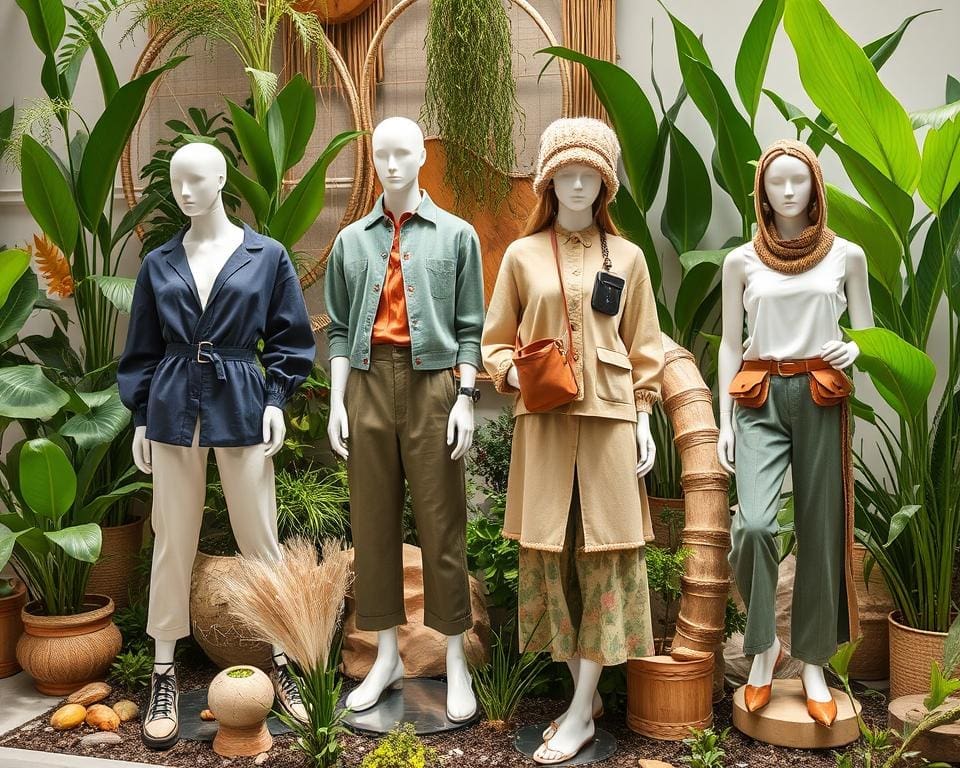The fashion industry is undergoing a significant transformation as more consumers turn their attention to sustainable fashion, seeking brands that prioritise ethical practices and environmental responsibility. This shift in consumer behaviour is not merely a trend; it reflects a growing demand for transparency and accountability in the fashion supply chain. As the global sustainable fashion market is projected to expand rapidly, it becomes clear that brands leading the change are not just appealing to eco-conscious shoppers but are also paving the way for a more responsible industry.
In this evolving landscape, understanding the motivations driving this shift is vital. Consumers are increasingly aware of the detrimental impacts caused by fast fashion, compelling them to seek out eco-friendly fashion alternatives that resonate with their values. As awareness translates into action, the future of fashion appears to be one where sustainability takes centre stage.
Understanding Sustainable Fashion and Its Importance
Sustainable fashion stands as a powerful response to the rising concerns surrounding environmental degradation and ethical production in the clothing industry. It represents a commitment to aligning fashion with eco-conscious practices, ensuring that garments are not only stylish but also responsibly produced.
Defining Sustainable Fashion
This concept encompasses the entire lifecycle of clothing—from the choice of raw materials to the production process and the final product. Sustainable fashion prioritises eco-friendly practices, which often include the use of organic or recycled materials and ethical labour conditions. Such practices contribute to the broader movement towards sustainable brands that challenge the fast fashion impact.
The Impact of Fast Fashion on the Environment
The fast fashion industry has garnered criticism for its profound negative effects on the environment. It accelerates resource consumption, leads to vast amounts of waste, and contributes significantly to water pollution. The relentless cycle of producing cheap, trendy clothing accelerates climate change, forcing a re-evaluation of consumer habits.
Why Consumers Are Shifting Towards Sustainable Brands
Consumers today are increasingly aware of the impacts of their purchasing decisions on the environment and society. This shift stems from a desire for transparency, ethical clothing practices, and a preference for products that align with their values. Sustainable brands have emerged as attractive alternatives, offering not only stylish options but also a promise of integrity and conscious consumption.

The Rise of Sustainable Fashion: Brands Leading the Change
The sustainable fashion movement is gaining unprecedented momentum, with numerous brands leading the change towards a more eco-conscious industry. These forward-thinking companies are not just making a statement; they are redefining the core values of fashion by prioritising the planet and its people.
Noteworthy Brands Championing Eco-Friendly Fashion
Stella McCartney, Reformation, and Patagonia exemplify the commitment to eco-friendly practices. Stella McCartney has long been an advocate for ethical fashion, utilising only vegetarian leathers and organic materials in her collections, as highlighted in various articles. Reformation focuses on transparency, providing consumers with detailed environmental impact reports, while Patagonia engages in environmental activism and promotes repair and reuse of products. These brands are pivotal in demonstrating how stylish, sustainable clothing can coexist, inspiring consumers to choose responsible options.
Innovative Practices in Sustainable Production
Innovative practices in sustainable production are critical to reducing the environmental impact of fashion. Techniques like zero-waste design and regenerative agriculture are becoming more mainstream, encouraging brands to rethink their manufacturing processes. Circular fashion concepts, which involve reusing and recycling materials, are also on the rise. By adopting these approaches, brands not only lessen their ecological footprint but also set remarkable examples for the industry. As these eco-friendly practices permeate the market, we witness a notable shift, inspiring a broader movement towards sustainability within fashion.








